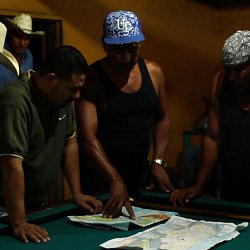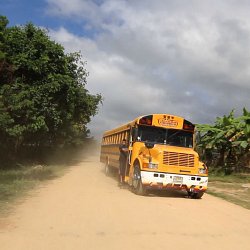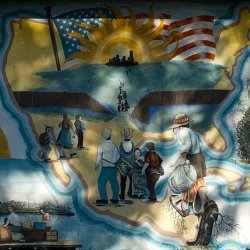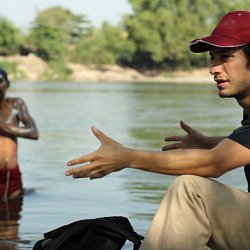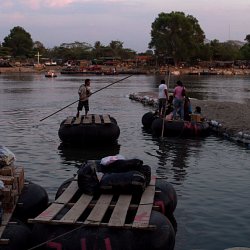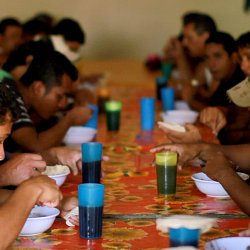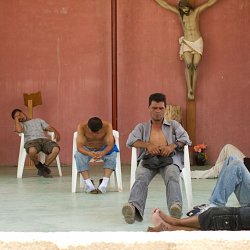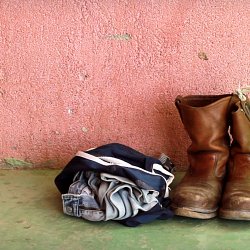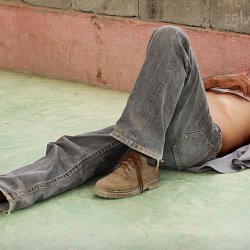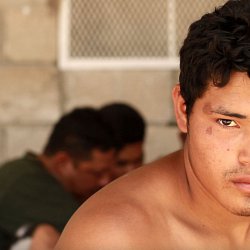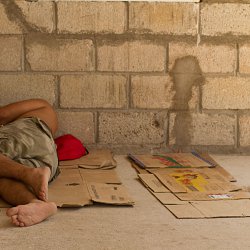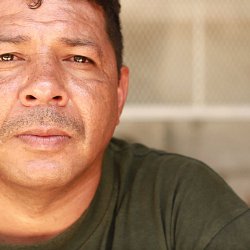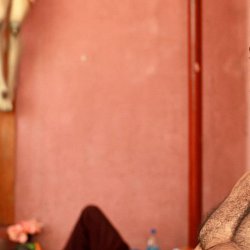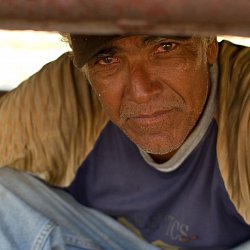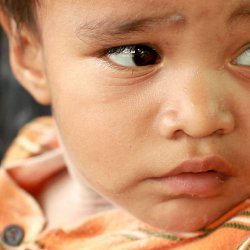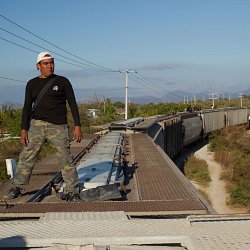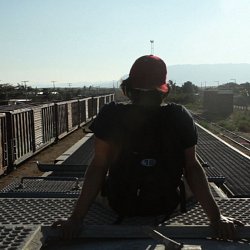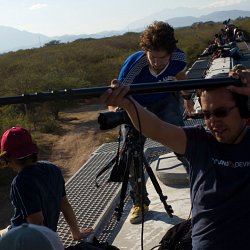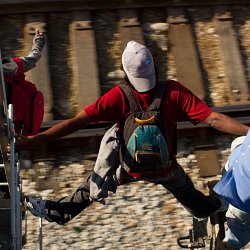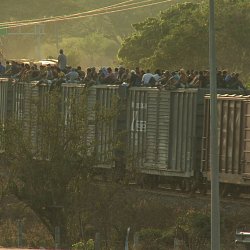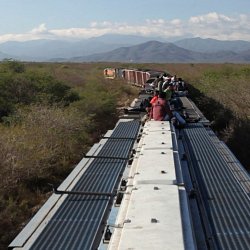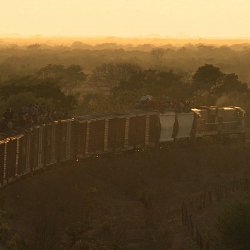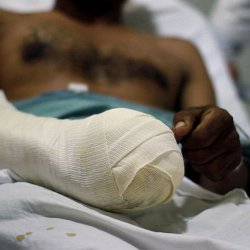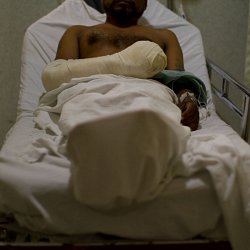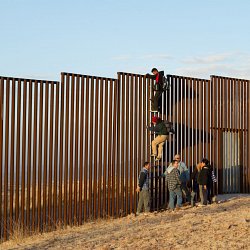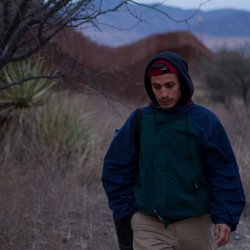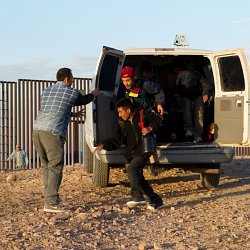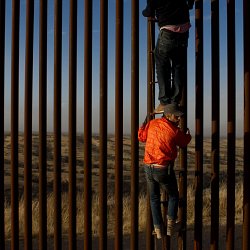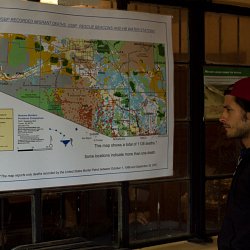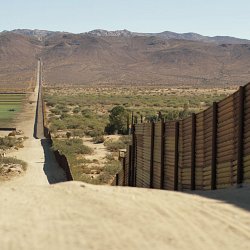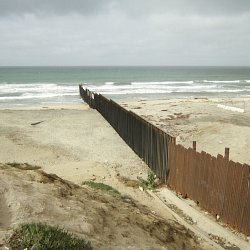Safety through Mexico
Padre Alejandro Solalinde, Ixtepec migrant shelter
As a way of coping with the effects of poverty, unemployment and violence in their countries of origin, migrants -mainly from Honduras, Guatemala, El salvador and Nicaragua are forced to migrate to the U.S. seeking for jobs and better livelihood opportunities.
But in order to get to the U.S. they have to go through a long and difficult journey through Mexico, where they are not able to move freely because the lack of documents that credits them with a "legal status”.
The existent regulation for migration laws was formulated in a way that betrays the spirit of legislators. It prevents exercising the human rights of migrants, and instead prioritizes security and strengthening of international operations to repatriate migrant workers.
In this hostile environment for migrants, and in order to avoid being retained and deported to their country of origin, migrants are forced to dodge any migration control that the Mexican government funnels align the route. As a result, migrants remained exposed to all kind of abuses such as extortions, mugging, rape, kidnapping and in some of the worst cases, death at the hands of criminal groups, specially the Zetas cartel. Adding to this is the constant collusion between authorities and criminal groups, and thus it is only 15% of the migrants, the ones that manage to arrive to the U.S. The rest is deported.
Mexico is going through one of their worst moments in history: Increased impoverishment of the population (54 million poors; 11 of them in extreme poverty) due to the neoliberal economic model implemented by the last few governments. The privatization of the country is increasing directly proportional to the concentration of wealth. On the other hand, violence keeps appearing everywhere, affecting the migrant population, who actually bears the brunt. – while corruption and impunity have kept in the same levels.
A key point in the fearing policy from Mexico is: Towards United States, total submission; towards countries in Central America, disdain and omission. Mexico instead could be creating holistic development programs in the region, but hey don’t do it in the way they could.
From the work that we have been doing through “Hermanos en el Camino”, we believe that in order to secure the integrity of migrants through their journey across Mexico, we need -from the countries where the highest flow of migrants comes from- to create Attorney offices in order to investigate effectively the offenses against this vulnerable community. A clear example of these are the existing offices in Chiapas and Oaxaca that -although with a poor performance- have been able to achieve some positive results.
Is also important to create new Police corporations with an ethical education to bring security (created with the only goal of safeguard migrants and not to do them migratory revisions, and specially not to bribe them).
Just as a crime is tracked after being committed, we could also prevent them by doing operations of “dissuasive vigilance” across the migration route. The independence and autonomy that characterizes each state in our republic, gives us the faculties to create this protection mechanisms for human rights without acting outside the law.
We know how encouraging it is what we are proposing here, but is clearly possible as long as we have a political will to enact. The opposing factor to it, is the commitment in security from Mexico with the U.S.
It is appropriate then that the Mexican government issue humanitarian visas of 180 days to international migrants coming from the south, enabling them a free crossing throughout the country. This way they would not be exposed to so many risks and will avoid being violated their rights. At the end migrants are not coming to stay in Mexico.
If the “Country of the North” is looking to reinforce its frontiers with a wall and more than 40 thousand border police patrols, then what logic does it make to avoid the foreigner to cross through Mexico, and rather than let him decide to knock on U.S. doors on his own to ask for a job?
This is only possible if we understand that the important thing here is to reassess the human being; promote a culture of solidarity. Instill the idea that money has occupied the place of God and has displaced the love to our peers because of the addiction to material goods. If we continue this way, we are condemning ourselves to loneliness and a meaninglessness existence. The migrants are a last minute call to rectify it and return to ourselves and to God.
We have been working on this from the “Brothers on the road Shelter” initially with the goal of offering humanitarian assistance to migrants. During our work we realized the need for a comprehensive attention for migrants traveling through Ixtepec. Over time we clarified our mission as to look after the migrants and guarantee their rights. Their defense and their political impact towards new legislation has been our primary goal at the shelter.
In this context, the documentary film “Who is Dayani Cristal?” and “The invisibles”, significantly contributes to the understanding of the complexity of the world of migration. Such a violated topic that sometimes it seems as if they proposed to pick on it intentionally.
The movie awakes the empathy and both social and official solidarity, while the message translates into less violence and more security for the migrant. Such a moving acting has raised really good critics among those who have seen it in private.
Finally, this heartbreaking exodus is an observatory that allows us to see what we are and what we are capable of doing with ourselves, by gazing at our own destructive force. Migrants are our hope in the renewal of the world; rejecting them, just delays our humanization.
